News
-
 Genetics
GeneticsThe Y chromosome’s genetic puzzle is finally complete
New analyses of the human Y chromosome reveal millions of new bases and different locations for the same gene in different people.
-
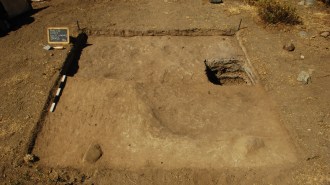 Archaeology
ArchaeologyPre-Inca people stomped salutes to their thunder god on a special dance floor
Excavation of a drumlike platform in the Andes turned up a structure seemingly designed to absorb shocks and emit resonant sounds when stomped upon.
By Bruce Bower -
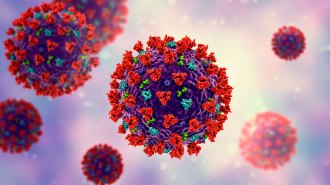 Health & Medicine
Health & MedicineHealth risks can persist at least 2 years after COVID-19, new data suggest
U.S. veterans who tested positive for COVID-19 in 2020 remain at higher risk for many long COVID conditions, from heart disease to gastrointestinal issues.
-
 Astronomy
AstronomyThis extreme star might have huge tidal waves
Gravitational forces between two orbiting stars might be creating huge waves of plasma on one of the stars that break and crash to the surface.
By Liz Kruesi -
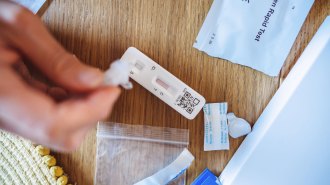 Health & Medicine
Health & MedicineWhat should we expect from the coronavirus this fall?
The virus may be reaching a phase of baseline circulation, says epidemiologist Aubree Gordon. But it’s unclear what will happen in the next few months.
-
 Space
SpaceRecoiling black holes could move at nearly one-tenth the speed of light
Knowing black holes’ speed after being kicked by gravitational waves can reveal how much energy converging black holes can release.
By Nikk Ogasa -
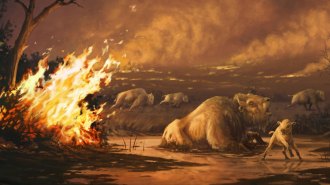 Life
LifeAround 13,000 years ago, humans and fire changed LA’s ecosystem forever
Rapid drying combined with human-made fires changed Southern California forever, killing off ancient bison, dire wolves and five other megafauna species there.
By Jake Buehler -
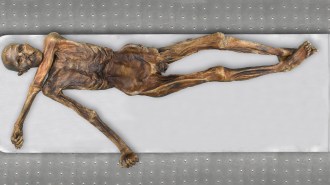 Genetics
GeneticsA new look at Ötzi the Iceman’s DNA reveals new ancestry and other surprises
Ötzi had genetic variants for male-pattern baldness and dark skin, and he also had an unusual amount of early farmer ancestry, a new DNA analysis finds.
-
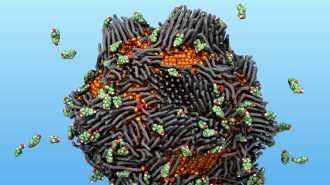 Chemistry
ChemistryMagnetic ‘rusty’ nanoparticles pull estrogen out of water
Iron oxide particles adorned with “sticky” molecules trap estrogen in water, possibly limiting the hormone’s harmful effects on aquatic life.
By Skyler Ware -
 Physics
PhysicsHow to run a marathon in under two hours
Running between other people reduces air resistance. A new study identifies optimal positioning of such drafting formations. Watch out, marathon records.
-
 Neuroscience
NeuroscienceNeuroscientists decoded a Pink Floyd song using people’s brain activity
The technique could be used to improve devices that allow communication from people unable to speak.
-
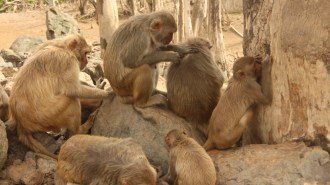 Animals
AnimalsMacaques in Puerto Rico learned to share shade after Hurricane Maria
Animals that spent more time together on hot afternoons were less likely to die during the years following the storm, a new study finds.